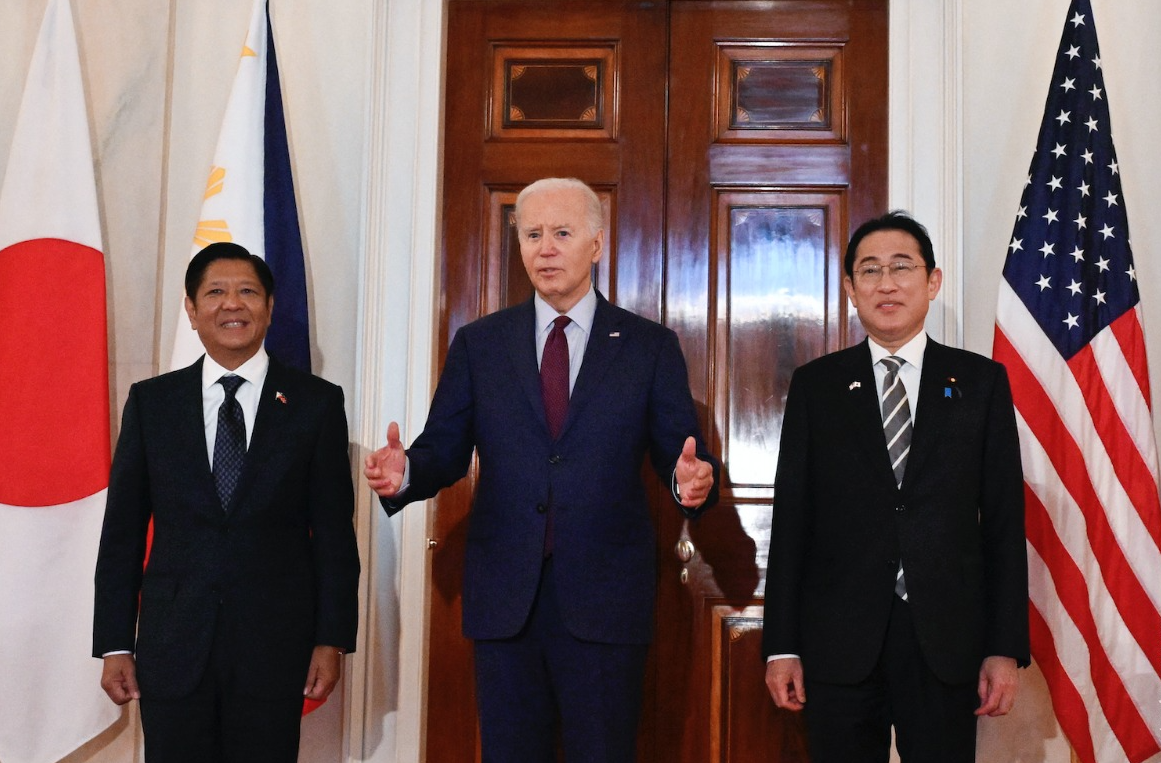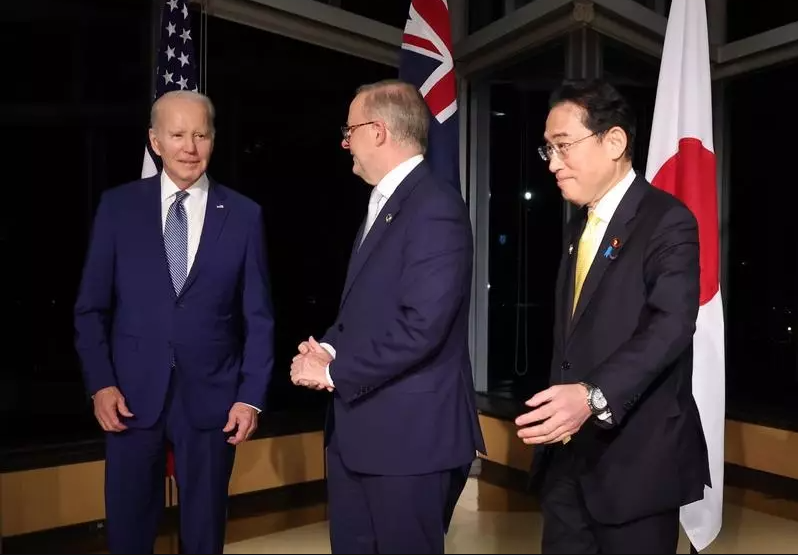Sebastian Contin Trillo-Figueroa, Geopolitics Analyst in EU-Asia Relations and AsiaGlobal Fellow, The University of Hong Kong
May 07, 2024
The EU’s latest moves in the green technology sector may inadvertently strain China-EU relations, potentially impeding progress toward mutual environmental objectives and causing detriment to both parties.

Lucio Blanco Pitlo III, President of Philippine Association for Chinese Studies, and Research Fellow at Asia-Pacific Pathways to Progress Foundation
May 02, 2024
The U.S., the Philippines, and Japan recently met in Washington for a trilateral summit, where they discussed security, diplomacy, economics, and more. At the meeting, Manila also exemplified a strategic alignment with Washington and Tokyo, particularly in countering China's assertiveness in the South China Sea and pursuing economic diversification away from Chinese dependency.

Cui Lei, Research Fellow, China Institute of International Studies
May 02, 2024
The United States has incentives to outsource the production of weapons, as its domestic capacity is insufficient to meet its needs. Co-production benefits others. But it’s also likely to lead to proliferation across borders, create regional security tensions and increase the risk of conflict.
He Wenping, Senior Research Fellow, Charhar Institute and West Asia and Africa Studies Institute of the China Academy of Social Sciences
May 02, 2024
Washington does not want the Israeli-Palestinian conflict to escalate, as that would undermine its “pivot to Asia” strategy. But it doesn’t mind so much when Israel attacks Iran because that serves as a sort of proxy warning to other hostile forces in the Middle East.
Warwick Powell, Adjunct Professor at Queensland University of Technology
Apr 25, 2024
The United States has intensified its efforts to assert or reclaim American Primacy in Asia. Assert if one holds the view that it still holds military preponderance; reclaim if one believes that it doesn’t. Through a series of so-called mini-lateral arrangements, the US has in recent years sought to enlist its Asia Pacific client states, former colonies and subimperial allies to anchor a 21st Century bulwark on the western edge of America’s Lake. The Quad, AUKUS and now the trilateral involving Japan and the Philippines form part of a lattice-like network, in all practical intents and purposes, aimed squarely at the containment of China.
Kemel Toktomushev, Research Fellow, University of Central Asia
Apr 12, 2024
While Central Asia is caught between two adversarial powers, it is unlikely to distance itself from Russia and China due to its geographical proximity and the already well-established ties between these nations.
Dan Steinbock, Founder, Difference Group
Apr 05, 2024
The doctrine of “assertive transparency” has dramatically escalated South China Sea tensions. Among other things, it has paved the way to the alignment of the U.S., Japan and Philippines in the impending April summit.
Lucio Blanco Pitlo III, President of Philippine Association for Chinese Studies, and Research Fellow at Asia-Pacific Pathways to Progress Foundation
Apr 05, 2024
Confrontations over the South China Sea are startling events that bring up the potential for heated conflict, but disagreements in troubled waters have ripple effects that lead to economic problems as well.
Zhong Yin, Research Professor, Research Institute of Global Chinese and Area Studies, Beijing Language and Culture University
Mar 25, 2024
Progress has been made by the United States to institutionalize three-way strategic cooperation with the ROK and Japan. Under this framework, North Korea, China and Russia are all targeted as America attempts to counterbalance China collectively and comprehensively. The concept is doomed.
Richard Javad Heydarian, Professorial Chairholder in Geopolitics, Polytechnic University of the Philippines
Mar 22, 2024
In a more perfect world, the Philippines proximity to China and relationship with the U.S. would be a net positive for the Southeast Asian power. Yet as things stand today, the situation leaves the Philippines walking a tightrope between the world’s preeminent superpowers.
Back to Top

- China-US Focus builds trust and understanding between the U.S. and China through open dialogue among thought leaders.
- Our Offerings
- Topics
- Videos
- Podcasts
- Columnists
- Research Reports
- Focus Digest
- Stay Connected
-
Thanks for signing up!
- Get the latest stories from China-US Focus weekly.